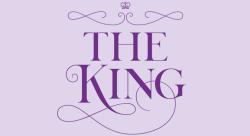Dear Thomas
I’ve been wondering: if I hadn’t been brought up polite I might have been a mogul by now. Pushy people are the ones who get on. Good manners aren’t always an advantage. Do you agree?
Evelina Mulholland, Lytham St Annes, Lancashire
Dear Evelina
Fascinating! Let’s get philosophical for a change. And topical. Why should a polite person be thought weak? More hesitant perhaps, more anxious and ready to apologise? Well, isn’t there a feeling now that this is just how prominent people in our society should be – more willing to admit to their mistakes? But when they do, for instance Nick Clegg over the tuition fees debacle, their supporters turn against them and kick them out. In that sense, you might be right: ‘polite’ equals ‘weak’.
On the other hand, does a ‘rude’ person necessarily ‘get on’? The stereotype of the ruthless brute, mercilessly ambitious, pushing others out of the way both literally and metaphorically, is familiar from TV dramas and films. The newly released The Shape of Water has just such a caricature, played by Michael Shannon. Meryl Streep in The Devil Wears Prada is along the same lines. These monsters do exist in real life, but don’t they eventually get their comeuppance? In the end they go too far – Harvey Weinstein, Robert Maxwell. They come to a bad end.
There are other ways of being a ‘success’. Being a tyrant and a bully isn’t the only option. It’s common sense really, but ideal leaders, and enduringly successful and effective people in all walks of life, have empathy, humility and can delegate (ie, recognise that other people can do things they can’t), listen to advice and admit to mistakes. They agonise over problems, often aren’t sure what to do but fix on a course of action anyway. They can co-operate with others, which requires consideration, which is the essence of good manners. Abraham Lincoln was an example of such a leader. It’s just that it makes for better entertainment if they’re walled-in paranoid psychos.
It’s going a bit far to suggest that good manners are the only component of a ‘successful’ person. But let’s return to the question: is it weak to be polite? No, it isn’t. It takes effort, patience and endurance to retain your composure, especially when under strain. As we see week after week, it’s not always easy to know what is polite and what isn’t. HM The Queen, in her long reign, has undoubtedly remained unflappable in the face of adversity, never snapped, never tried to blame others. Here is an example of what it takes to achieve real courtesy.
What’s more, politeness works. Some may succumb to being railroaded into doing things, but few like it. Most would far rather be asked nicely. We respond openly and generously if we feel someone is taking some notice of us. So, all in all, carry on being polite.
Please send your questions to thomas.blaikie@lady.co.uk or write to him at The Lady, 39-40 Bedford Street, London WC2E 9ER
WHAT TO DO ABOUT...Standing Up
You may remember (1 December 2017 issue) Sally Young from potters bar went to California and was astonished to see a group ordering only dessert in a posh restaurant. Now I’ve heard from Jacqueline Gillam Fairchild, owner of Her Majesty’s English tea room in Dunlap, Illinois, who throws some light on the matter. ‘Dear Mr Blaikie, I love The Lady and put copies out for my diners to enjoy. Regarding the dessert-only letter, many restaurants here in the states offer just very basic desserts, but there are a few with pastry chefs who create magnificent concoctions. Well, here’s the rub – who has room for one of these fabulous desserts after a full meal? Hardly anyone. Yet these are desserts one is rarely going to make at home – too elaborate and time-consuming. So it is almost our duty to order dessert. And dessert only – that just might be the solution. My guess is said restaurant had desserts that were good enough to make an event of. And isn’t it rather lovely to indulge now and again?’










